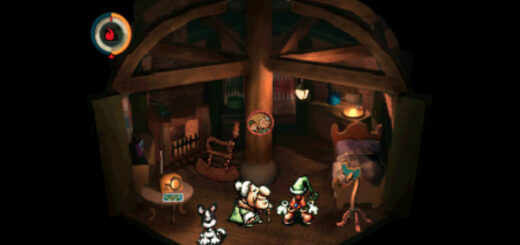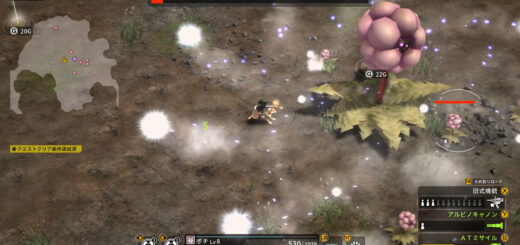Deus Ex: Invisible War Retroview
Fighting in the War Room
While Deus Ex has a formidable reputation, and deserves pretty much every bit of it, the game’s sequel is discussed far less often. Deus Ex: Invisible War is a severe disappointment at best, and few are the people who try to hold it up as anything worth playing. I had middling expectations going in, and the game proved unable to achieve even those. It’s a colossal mess that deserves to be buried in video game history, as befits its current status.
It is 2072, twenty years after J.C. Denton ushered in what is now called the Collapse. Society has picked up the pieces to a surprising degree, and factions are once again fighting with each other over the path humanity should take. Alex D. is a recruit who has been kept away from society at large while training, only to be suddenly placed in the path of momentous events when a terrorist attack destroys Chicago and causes bloodshed in Seattle. Alex’s path is a multifaceted one, with several organizations competing for loyalty in a quest to remake the planet once again.
The raw material of Invisible War‘s narrative could have been turned into something effective, but instead it feels as if Ion Storm’s writers compressed things far too much. At the beginning confusion will result from the attempt to deliver too much information in a brief span of time, and reams of exposition later on will not translate into more understandable characters. Multiple factions are presented and given just enough development to be distinct from each other, without having fully comprehensible and sensical motivations. Some moments along the way are interesting, but this is a narrative that comes across as if the writers had to leave huge chunks on the cutting room floor.
Comparing Invisible War‘s protagonist to the first Deus Ex is unfortunate, but certain plot revelations make it unavoidable. Where J.C. Denton managed to feel intelligent and like a leader even when buffeted by the enormous forces of his world, Alex D. barely has a personality. Ion Storm attempted to give a meaningful choice system so that Alex D. could ally with whichever faction was most appealing, but there are almost no consequences to picking options. Alex can cheerfully slaughter every member of the Knights Templar throughout the game until the conclusion, at which point the option to make things go that organization’s way will still appear. Plenty of missions appear throughout the game that are at loggerheads with each other, but there is no consequence or repercussion from favoring one group instead of another, and the only reward granted is money.
Invisible War definitely plays like the first Deus Ex‘s addictive FPS and stealth blend, except with a number of tweaks made that do not help matters. Enemies are now much better at sensing a crawling protagonist from behind, which cuts down the efficacy of sneaking around. While there are plenty of air ducts to investigate, there is rarely a reason to dodge fights when a bullet to the head gets the job done faster and better. Enemy AI has changed slightly from the first game in favor of a more vicious approach, as opponents will often not take a moment to make sure of what they’re seeing and just start spraying bullets. It is fortunate for the player that the short-term memory of these adversaries is so lacking that seeing a friend’s body next door will elicit no reaction after about thirty seconds of keyed-up adrenaline wears off, allowing for easy dispatch of the unsuspecting idiots. There is also no reason to use nonlethal means against any adversary, as Invisible War lacks any consequences for slaughtering every enemy in the path instead of simple incapacitation.
It looks and feels like Deus Ex in many respects, but Invisible War‘s inventory is much less user-friendly. For some reason the number of items with hot keys has been cut to six, which is often just not enough to get the job done without opening the inventory. In a ridiculous twist, nanotechnology has supposedly made all weapons use the same base material for operation, which means that flamethrowers and sniper rifles are fired from the same limited pool of ammunition. In a similar piece of dumbing down, the number of augmentations that can be acquired is smaller than Deus Ex‘s roster, and canisters are easier to find for upgrading them. Lockpicks have been done away with, and multitools do everything. A particular bother comes from the annoying way enemy bodies must be picked up and tossed elsewhere in order to grab the ammunition they leave behind — by the end of the game more cadavers will have been moved around than the average coroner deals with in a year.
Deus Ex might have been difficult to run when it was a new release, but the game plays just fine now. Invisible War, on the other hand, manages to run far more poorly than its predecessor. It is startlingly easy to trigger conversations in the wrong order, get graphical glitches, find items floating in the air, experience baffling AI moments, and get the occasional crash to keep things interesting. All of these are odd and annoying, but the inexplicable load times are where Invisible War really goes haywire. For a game fully installed on a hard drive to go through load times that hit thirty seconds every time it needs to move to a different area is intolerable.
While it’s still easy to die in Invisible War, there are very few scenarios such as in the first Deus Ex that require multiple tries to progress. Death usually results from being careless instead of finding a tricky scenario that demands thought, and since reloading a prior save now takes such a long time, the player has every incentive to be careful. Invisible War is shorter than its predecessor also, and since all of the endings can be achieved in the final area with no prerequisites, seeing everything the game has to offer in under twenty hours is easy.
Invisible War‘s visuals are solid at first glance, leaving the enormous polygons of the first game’s environments behind. Closer inspection reveals character models that are deep inside the uncanny valley, however, with eyes that are always fully open and a surprising number of dialogue scenes using the body language of gunfighters about to draw. The voice acting is roughly on par with the first game’s, sporting some characters who are solid and others with inappropriate monotones. Unfortunately the soundtrack is much less memorable, due in no small part to the audio mix relegating it to a lower volume against the dialogue and sound effects. What is there seems adequate, but hearing the tunes in the first place requires sitting around and paying close attention to the audio.
Invisible War is not the worst sequel to a game ever made, but it’s one of the most depressing reductions in quality ever experienced by a series. While following the first Deus Ex was admittedly a tall order, surely Ion Storm could have managed better than this. It would take eight years before another extension to the series came to be, and it’s hard to say that the long break was undeserved.


Promising moments along the way
Fighting is effective
Waiting for it to load
Feels way too truncated
Deus Ex for Idiots








Recent Comments